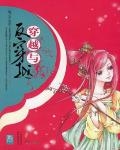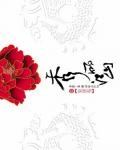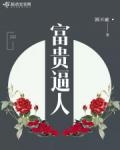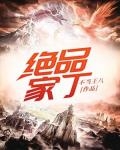Volume 2: Residence in the Capital Chapter 124: There Was a Monk in the Tang Dynasty
Since the initial introduction had already taken up quite a bit of time, Zhang Shou began the formal lecture according to his previous preparations.
"There are thousands of students in the Imperial College. Most of those who study hard and are promoted to Ratexing Hall want to take the imperial examination and gain fame. However, most of the students in Banshan Hall do not take the imperial examination, unlike the other six halls. But today, since we are in the Imperial College and this is our first history class, I will just tell you a story about the imperial examination."
"During the Tang Dynasty, there was a monk. Of course, he was not called Tang Sanzang."
Zhang Shou's first sentence was just a joke out of habit, but it immediately caused a burst of laughter. When he heard someone shouting about Journey to the West, he realized that it was probably Emperor Taizu who had published Journey to the West early.
Fortunately, he had never aspired to be a literary giant, so he just pretended not to hear the noisy voices and continued talking.
"This monk got tired of being a monk and suddenly had an idea that being a Taoist priest was not bad either. So he grew his hair and returned to secular life, and went to Mount Lushan to be a Taoist priest. However, after three years of living on wind and dew, he still couldn't become an immortal. He finally realized that being an immortal was not as good as being an official. So he worked hard and prepared to take the imperial examination, and then... he passed."
Hearing the uproar, Zhang Shou smiled and said, "Do you think this is ridiculous? Actually, it is not ridiculous at all. In the Tang Dynasty, the imperial examination depended on reputation. As long as you were a monk with a small reputation, but wrote good poems and songs, and were appreciated by the powerful, you would certainly be selected. The chief examiner just needed to choose this person who had been in both the monk and Taoist circles."
Zhang Chen was considered by his father to have no talent for studying since he was a child. He could not help but blurt out six words: "This is just grandstanding!"
Zhang Shou ignored Zhang Chen and continued, "This monk was a Jinshi. Some even claim that his writings can be compared with those of Han Yu and Liu Zongyuan. Of course, most of us only know Han Yu and Liu Zongyuan, not this monk. But he was once a censor and a governor, which is considered a great achievement. Oh, this monk's name is Liu Ke. If you are interested, you can check it out."
Before Zhang Chen could interrupt, he continued with a smile, "During the Tang Dynasty, there was a monk who probably admired Master Sanzang, so his Buddhist name was Zangji. He liked Buddhist scriptures since he was a child, so he became a monk in the Da Ci'en Temple in Chang'an, and even gained a reputation as a great virtue, and was famous throughout Guanzhong. But during the Guangming Rebellion, this monk was frightened by Huang Chao who came to Chang'an."
"He was a young and eminent monk, but because of the drastic change in the times, he quickly returned to secular life, grew his hair, and took his elderly parents to escape the war. He hid for more than ten years. When the chaos finally subsided, he finally realized that being a monk in a chaotic world, where one cannot even keep oneself safe, might not be a good fate. So he decided to follow the example of his predecessor, monk Liu Ke, and also take the imperial examination."
Zhang Shou paused , and seeing that Zhang Chen had already frowned, he slowly said, "But this former great monk was not as lucky as his predecessor. He met an upright examiner, who looked down on him, a famous monk from Da Ci'en Temple, and dismissed him without even looking at his paper. But Monk Zangji did not give up. After thinking about it, he applied for the Boxue Hongci exam again."
As soon as these words came out, there was a burst of amazement in the Banshan Hall. Although he was a playboy, he still had common sense. Although the imperial examinations were not often held in this dynasty, there were occasionally imperial examinations for hermits such as the Boxue Hongci Imperial Examination. The famous Grand Tutor Ge once won the first place in this examination.
As for the difficulty of this subject, because Taizu did not like hermits very much, it was known as the most difficult in the world.
Zhang Shou paused for a moment and then explained, "The examination for erudition and eloquence in the Tang Dynasty was not as difficult as that in our dynasty, but it was not less difficult. Monk Zangji had a beautiful and elegant writing style and thought he had a sure win. However, he was unlucky enough to run into the same examiner again. At this time, the examiner was already the Minister of Personnel. There was no doubt that he was dismissed again."
"However, Monk Zangji was not convinced and went to protest in front of him, citing the example of his predecessor, monk Liu Ke, who passed the imperial examination. As a result, the chief examiner angrily scolded him, saying that although Liu Ke, whom you mentioned, became a monk, he was not as famous as you. Your father was the governor of Rongguan, but you became a monk for no reason. I have been the chief examiner ten times and I have rejected you ten times. Not only that, I have also made a big fuss about the matter!"
Hearing this, Zhang Chen cheered loudly: "A monk who has returned to secular life actually wants to take the imperial examination. His six senses are not pure, and he deserves to be expelled!"
However, some people raised objections, thinking that the times had changed and the monks had to return to secular life, and that the examiner was too unkind.
The Third Prince, who had just figured out what "dismissal" meant after whispering with his Fourth Brother, could not help but stammer, "He has already failed the exam, that's enough, why did the Chief Examiner publicize it? Father always said that you should forgive others when you can, isn't this Chief Examiner too intolerant?"
The emperor outside the door couldn't help but sneer when he heard the word "tolerance", but Zhu Ying snorted unhappily: "One didn't think clearly before becoming a monk, and the other was too harsh and unkind. But the monk is still more wrong. Why did he become a monk when his parents were still alive! What did you do when you later learned to be filial?"
In the hall halfway up the mountain, Zhang Shou did not answer the Third Prince, but glanced at the others. He saw that everyone was talking to each other in groups of three or four, but no one rushed to interrupt and reveal the spoilers. Obviously, not many people had read such an unconventional story.
He then continued, "Monk Zangji was very good at scheming, so even though he was blocked twice, he still succeeded and entered the Guangwen Academy as a doctor. He was well-informed and had a good memory, and he was also a good writer. Several military governors rushed to recruit him to join the shogunate. Finally, when he was sent as an envoy to Zhu Wen on behalf of a military commander, Zhu Wen kept him and made him the secretary of the military governor. Later, he was recommended to join the court."
"Zhu Wen was in control of the military power at that time, and Monk Zangji was personally recommended by him to enter the court. Naturally, he had a prosperous career and became a secretary of the Central Secretariat and a Hanlin scholar."
At this point, Zhang Shou casually popularized the extremely chaotic history of the late Tang Dynasty. Seeing that many noble children who seemed to have never read books or history were gradually curious about the follow-up, he said calmly: "Afterwards, Zhu Wen replaced the Tang Dynasty and became the Emperor Taizu of Liang. And this former monk Cangji first became the Minister of Works, the Imperial Academy Scholar, and later he even became the Prime Minister."
At this time, the third prince could not help but ask, "But where is the examiner?"
" How can someone who can't stand monks taking the imperial examination stand stand for Zhu Wen replacing the Tang Dynasty?"
Zhang Shou's mouth drooped, and he said lightly: "Of course, he couldn't stand it and couldn't say anything. Just one year before Zhu Wen replaced the Tang Dynasty, the chief examiner Zhao Chong, who had retired as one of the three highest officials, was executed at Baimayi with the then prime minister Pei Shu and hundreds of others. Even their bodies were thrown into the Yellow River. Monk Zangji made a great contribution to this matter."
"Futu is abominable!"
It was not Zhang Chen who stood up and slammed the table, but the Fourth Prince. The shortest little prince in the entire Banshan Hall was so angry that his face turned red. He waved his fist and shouted loudly: "No wonder Emperor Taizu strictly prohibited Buddhist temples from ordaining monks on their own, not allowing more than 300 monks, not allowing them to own more than 1,000 acres of land, and not allowing them to enter government offices without permission... It's so evil!"
The emperor in front of the door saw that Zhu Ying was also frowning, and he was clearly feeling a bit indignant. He didn't even need to step forward to know how subtle the expressions of Zhou Jijiu, Luo Siye, and those doctors of the Imperial College would be.
Unexpectedly, Zhang Shou used the story of a monk to tell those noble children who could not understand the Four Books and Five Classics about the extremely tragic White Horse Disaster in the late Tang Dynasty, and he interpreted it from another perspective.
"Zhu Wen replaced the Tang Dynasty. To be more precise, he usurped the Tang Dynasty. He killed hundreds of people at Baimayi. It was brutal and cruel. But to be honest, Zhu Wen held military power at the time. Even if these civil officials tried to stop a chariot, they could not stop him from usurping the Tang Dynasty and becoming emperor. Moreover, some people did not intend to resist him at all. So why did he kill so many people?"
Zhang Shou paused and said in a low voice, "Because he wanted to eliminate all those noble families who claimed to be upright and looked down on him, eliminate potential opponents in the future, make more positions for those failed scholars who served under him, and give them a way to vent their anger. Why did these people want to vent their anger? To a large extent, it was just because of four words: the imperial examination was unfair."
"The imperial examination started in the Sui Dynasty, but it was not until the Tang Dynasty that rules were gradually established. Unlike today, where we have to go through the county examination, prefectural examination, academy examination, provincial examination, metropolitan examination, and palace examination, in the Tang Dynasty, only the examination for the Ministry of Rites and the examination for the Ministry of Rites were relatively formal, and the selection process after the examination for the Ministry of Rites was far less rigorous than it is today."
"Moreover, even during the examinations for the Ministry of Rites and the Ministry of Justice, when selecting scholars, there were many requests from all walks of life, and friends spread the news of the results. It was like a riot of demons, and I don't know how many talents suffered. It is said that the examination is held every year, but there are only a dozen people who pass the examination every year, and countless talents are lost. And because the examination is held every year, I don't know how many people dare not go home, and live in the capital year after year, begging for food from their fellow villagers, and living in poverty."
"At the end of the Tang Dynasty, there were many military governors. The talents that the examiners of your court disdained were coveted by the military governors. Therefore, when the military governors forced the central government to take over, the noble families who once boasted of their power naturally became the targets of revenge by the failed scholars and the military governors. Even Huang Chao, who led the Guangming Rebellion, rebelled because he failed in the exams many times."
"So, from the Tang and Song dynasties to the present, the imperial examinations have gradually become fairer, from covering names to transcribing, from one chief examiner determining everyone's ranking, to examiners from each department reviewing the papers, the chief examiner reviewing, and even searching for failed papers. At least, ordinary people finally have a way to rise. The rich and powerful have also been warned."
The third and fourth princes were still young, so they understood the first meaning, that the monk killed the examiner. Most of the noble children, including Zhang Chen, understood the second meaning, that the monk took advantage of the unfairness of the imperial examination to take revenge on the examiner, a group of upright scholars, by joining the usurper Zhu Wen. However, Zhang Wu, Zhang Lu and a few others understood the third meaning.
There were no aristocratic families in this dynasty, because when Emperor Taizu conferred titles on his meritorious officials, he established a permanent rule that if they did not make great contributions, their titles would be reduced from generation to generation. Among Ruizong's meritorious officials, except for the three hereditary Dukes of Zhao, Chu, and Qin, the rest had their titles reduced. The cabinet ministers were not allowed to be of the same clan, and fathers and sons and clansmen were not allowed to hold official positions.
Therefore, most of the nobles sitting here today are descendants of Ruizong's meritorious officials. For the civil officials, many of their ancestors were unknown three generations ago. Even if a family is rich now, if there is no outstanding son to inherit, it may not even take five generations, but two or three generations to decline.
How many frustrated people like Monk Zangji are there in this world who are eyeing the aristocratic families occupying high positions?






